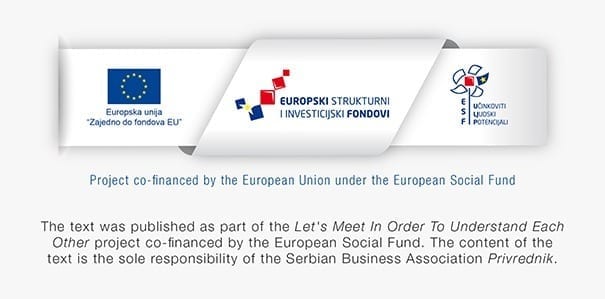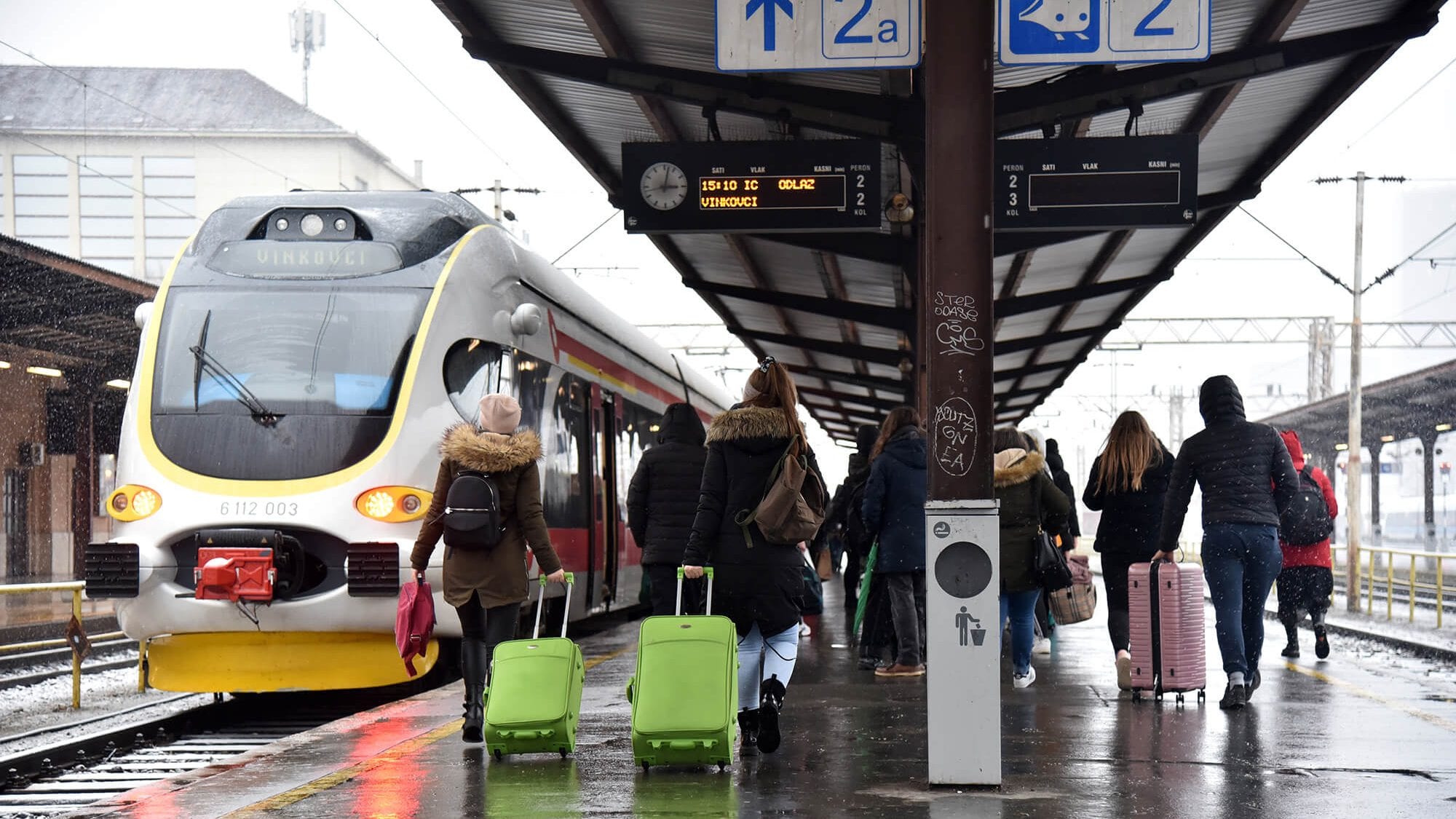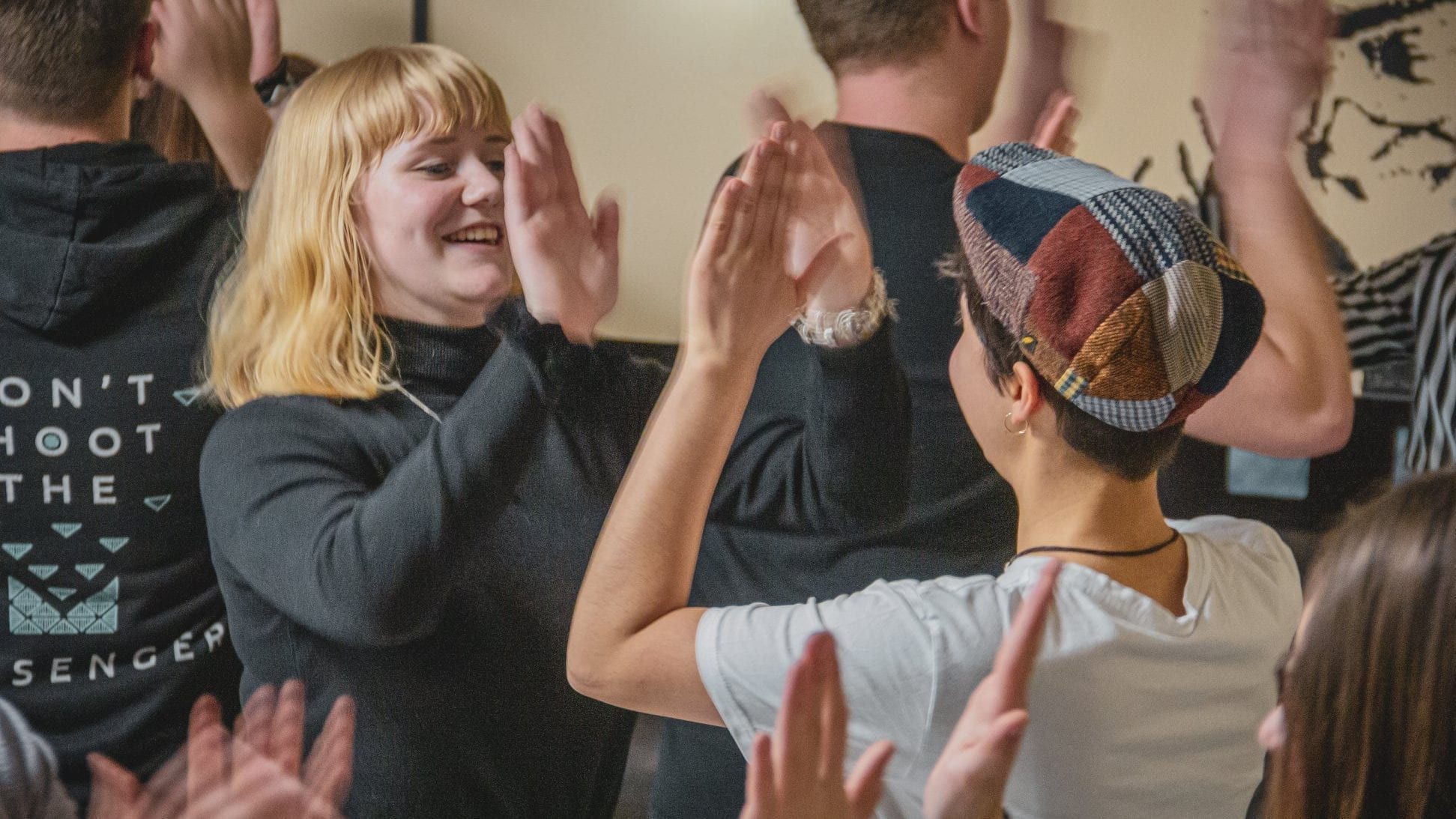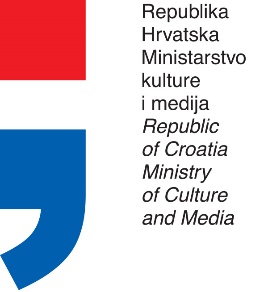Only 28% of young people in Vukovar want to stay in that city, while the rest plan to build their lives elsewhere, be it in Croatia or abroad. These are the results of the research “The Habits and Needs of Young People in Vukovar”, conducted among 300 young people between 15 and 30 years of age by the Proni Center for Social Education in 2021. The participants emphasized that the city lacks prospects for a normal life, and more than half of them believe they do not have the opportunity to participate in shaping local politics but that others do it in their name. Other problems in the community they singled out are physical violence among young people, lack of tolerance towards ethnic minorities, unemployment among young people and addiction to drugs, alcohol and tobacco.
In such an atmosphere, it is a real challenge retaining young people, and especially those who belong to the so-called NEET group – young people not in education, employment or training.
Dimitrije Vladić from Podrinje, a village in the Markušica municipality in the Vukovar-Srijem County, is one of the twenty young people included in the “Pronađena NEET” project.
“I want to learn to write EU projects and get money from European funds to realize my vision,” says Dimitrije, who enrolled in a free education program offered by the “Pronađena NEET” project that will make him an associate project manager for EU projects.
The project is conducted jointly by the Proni Center for Social Education from Vukovar and Osijek and partner organizations: the Public Open University Osijek, the Nansen Dialogue Center in Osijek, the Vukovar-Srijem County Development Agency and the regional offices of the Croatian Employment Service in Vukovar and Osijek.
The target group of this project is inactive young people between 15 and 29 years of age, with an emphasis on members of national minorities from rural areas. The project is a part of the “Pronađi me!” program of the European Social Fund – an outreach and education program for inactive young people in the NEET status – and is funded by the EU in the amount of 1,557,623.41 kuna. The project started in July 2021 and will be conducted for 18 months, until January 2023, in two counties – the Vukovar-Srijem and Osijek-Baranja County.
NEET young people – young people who neither work nor study
“The NEET group consists of young people who are currently unemployed, are not registered with the Croatian Employment Service, are not in education, training or retraining and are not receiving any kind of benefits. They are not necessarily marginalized groups but are those who are not in education or on the labor market at the moment when they join the project and belong to our target age group of 15 to 29 years of age. The project’s goal is to find 30 young people from these two counties, animate them and include them in one or more of the education programs on offer. The current response is such that only about 20 young people are participating in the project. They are mostly young people from rural areas, from the Markušica, Lovas and Andrijaševci municipalities in the Vukovar-Srijem County. We have not had any interest from young people from cities such as Vukovar and Osijek. We expected a bigger response because we promoted the project through local media, social media, municipalities, cities and personal contacts,” explains Goran Jelenić, the project assistant and office manager at the Proni Center for Social Education in Vukovar.
The “Pronađena NEET” project offers young people the opportunity to attend five accredited programs at the Public Open University Osijek. The programs are: EU project manager/associate, the most popular program; caretaker; PC operator; group course of German; florist/arranger, which mostly attracted female participants. All these programs are free and enter the employment record book, and the participants’ travel expenses are paid for. The first programs started in February and continued through March and April; applications are open until September 2022. Ten most active participants will get a free drivers education course for category B, as a way to improve the mobility of young people. All programs include work placements, which will connect participants with potential employers.
We must have faith in young people
“I found out about the NEET program through the Youth Peace Group Danube from Vukovar, where I have been volunteering for several years. After I graduated from gymnasium, I enrolled in the Croatian language and philosophy studies at the Faculty of Humanities and Social Sciences in Osijek. I dropped out in my first year because I wasn’t happy with my studies, which I enrolled in at the suggestion of others. Since I was then unemployed, I joined this program to get a certificate, but also to achieve my goals. Meanwhile, I took a job as a waiter to have a source of income and not depend on my parents too much,” says 18-year-old Dimitrije Vladić, a participant in the project and member of the Serbian national minority.
Since an early age, Dimitrije has sung, composed songs and played the accordion, guitar and piano. He performs at private parties, in cafes and bars. Music is a hobby for him right now, but he wants to pursue it professionally in the future. His goal is to one day have something of his own – a bar where different cultural events would take place. Until then, he wants to establish VUurban – an urbane community in Vukovar which would bring together young artists who want to create and prove themselves.
“We want to get things going in Vukovar and start an activist story. We are interested in the street scene – street performers, painting facades and digital art. To make that happen, we need EU projects, so I enrolled in the EU project associate program. I want to learn to write EU projects and get money from European funds to realize my vision. This is the first education program of this kind for me, and I am happy with it,” continues Vladić.
When he joined the Youth Peace Group Danube a few years ago, he was, as he says, totally lost, without a direction or idea, and peace activists helped him a lot in finding himself and figuring out what he loved to do. He wants the same for other young people. He believes we need to have faith in the new generations.
“A lot is expected from young people, who live in challenging times and difficult circumstances. In my opinion, young people are not active enough, do not take initiative, and I also notice they lack work ethic. It saddens me when young people give up on themselves. I want to be a musician, author and artist. I won’t give up on my dreams. But to fulfil your dreams, you don’t walk over others, because their dreams should be respected, too,” says Vladić, adding that it is very hard to achieve your dreams in a village community, which is, he says, small, passive, without content and options for young people. That is why he moved from Podrinje to Osijek.
The purpose of the project is to help young people become independent and find jobs
According to data from the Proni Center for Social Education, previous knowledge about the characteristics of the NEET population in Croatia is limited and is mostly based on the data from the workforce survey of the Croatian Bureau of Statistics. Several groups can be identified within the NEET population: conventionally long-term and short-term unemployed persons, unavailable – persons with disabilities or other difficulties, uninterested and discouraged persons, persons awaiting better options, voluntary NEET persons and others. According to Eurostat’s data from 2019, Croatia has 14.2% of NEET persons, placing it seventh in Europe.
According to research conducted among young people by the Proni Center for Social Education, persons in the NEET status need to be additionally motivated, empowered and mentored and counselled one-on-one in order to return to the system, which they usually leave out of a lack of trust, difficult life circumstances or other reasons. Research has shown that the school system’s main goal is to implement the curriculum, while gaining key competencies is reduced to sporadic and discontinuous activities at educational institutions or civil society organizations, which organize workshops and educational programs for empowering vulnerable groups only occasionally, through projects and depending on available funds. Through planned, continuous support and education and preventive activities for developing key competencies necessary for an independent life, many vulnerable groups of young people are encouraged and empowered to achieve social inclusion and find employment.
The “Pronađena NEET” project was conceived based on these findings. Its content is divided into three parts. The first part is a small school of life skills; the second part consists of targeted education programs for skills which are in demand on the labor market; the third part is mentoring and counselling.
“Before starting the official education program, all participants attend a small school of life skills as an informal education program. They develop social and communication skills, gain more confidence, learn how to deal with stress, avoid conflict situations and present themselves to employers. After finishing their education programs, they will have support from a mentor who will direct them to the next steps – further training or employment. For us, it is very important to measure the effect of this program on young people and to know what happens to them afterwards. We want to follow their further development and help them become active citizens in their communities,” concludes Jelenić.
Translation from Croatian: Jelena Šimpraga






